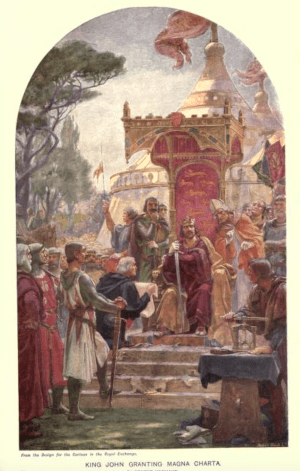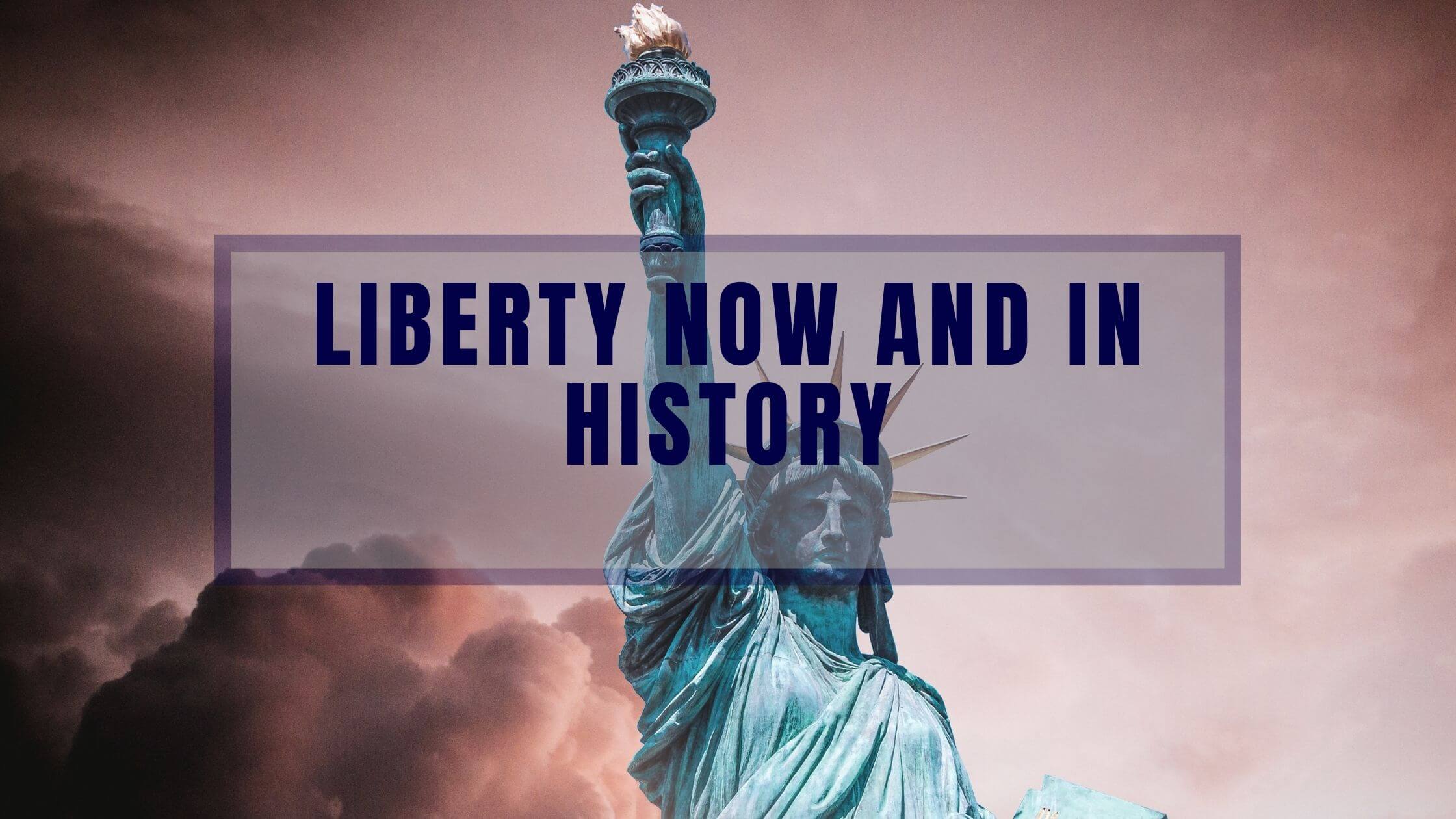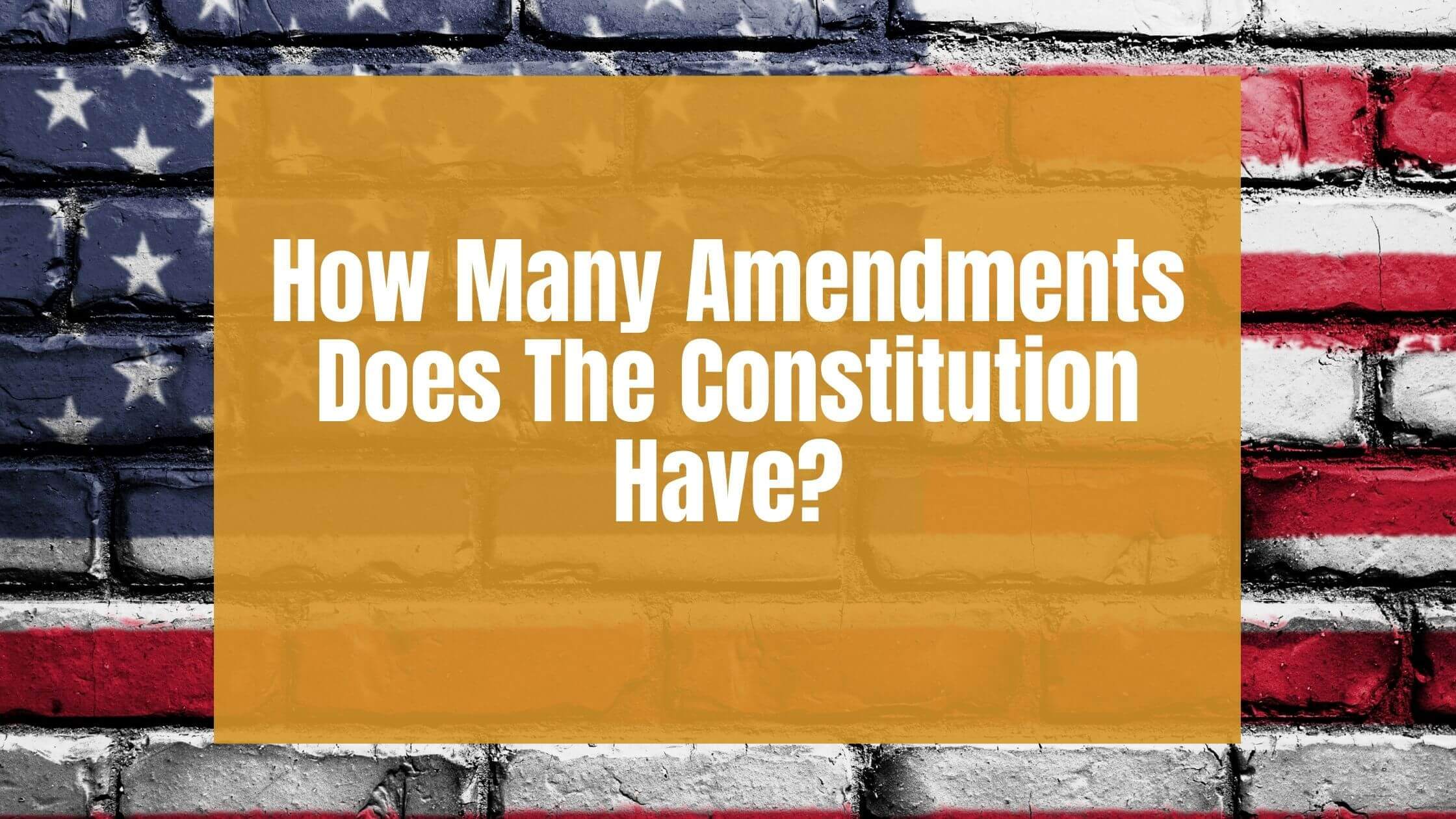Table of Contents
ToggleWhat is Liberty?
Liberty is the idea that people should be free from unnecessary authority. It is the idea that people should be free to do as they please, as long as they do not try to take away the liberty of others.
Governments should not be able to force or coerce people into doing things. Instead, they should only do so in order to prevent the people from using force against each other.
The state and the laws should mostly leave people alone. The government should protect the country from lawlessness and foreign threats but should not interfere much in the lives of citizens. Things like excessive taxes, unnecessary laws, unnecessary regulations, an overly large government, and a lack of rights and freedoms are said to be against liberty.
Liberty is a Very Old Idea
The idea that the citizens of a country deserve liberty is not an invention of the 18th century. Instead, some people promoted liberty in the early centuries AD and before.
The Roman Emperor Marcus Aurelius talked about having the same laws for everyone, equal rights, freedom of speech, and a government that respects the freedom of the people.

Before Marcus Aurelius, some Ancient Greek philosophers talked about liberty. The idea of liberty may come from the Greek differentiation between freedom and slavery.
Freedom is About not Having a Master
The Greeks saw freedom as not having a master – living as they pleased, not being told what to do. Someone who is free should be able to choose where they live and not be told where to live – this is still part of the concept of liberty today as symbolized by Lady Liberty on Liberty Island, Manhattan, New York.
The Greeks also suggested that someone who is free should not be ruled at all or be ruled as little as possible. This still exists today as the idea of limited government.
Most people in ancient Greek societies were not free – they did not believe in extending liberty to all of the people in their societies. However, the idea of freedom existed long before people believed in equal rights.
Liberty in Other Parts of the Ancient World
For some of their history, the Persians believed in freedom and were almost modern and progressive on these issues. They gave rights to women, all ethnic groups, and all religious groups, and they even abolished slavery as far back as 550 BC.

While abolishing legal slavery across the world is a recent achievement, people hundreds or thousands of years ago sometimes temporarily abolished slavery. Ancient India also sometimes believed in freedom, tolerance, and equality. There was less freedom in Europe in the medieval period than in the Roman period, and it was mostly limited to the upper classes.
However, the idea of liberty never disappeared, and it returned in the 18th century, leading to democracy and eventually to the civil rights movement. Modern politics is still largely about which laws are necessary and which unjustly infringe on people’s civil liberties.
Magna Carta
The Magna Carta is a very important historical charter that limited the rights of the government and protected the rights of the citizens. It appeared in 1215 and influenced the later laws of Great Britain, the American Revolution, and eventually laws all over the world.
This seminal document was written to prevent civil war. After the king angered other powerful people in England, he was confronted by dozens of barons who were willing to go to war against him. He signed the Magna Carta, or “the great charter of freedoms,” to prevent war.

It was not enough to stop people from fighting, though. The pope nullified the Magna Carta a couple of months after King John signed it, and England went to war.
However, Magna Carta was too powerful of an idea to be forgotten. It was signed more than once after King John’s death, and it protected people from unjust laws and rulers.
Magna Carta aimed to protect people from unjust punishment. It says that, “No freeman shall be taken, imprisoned, disseized, outlawed, banished, or in any way destroyed, nor will we proceed against or prosecute him, except by the lawful judgment of his peers or by the law of the land.” Parts of the American constitution that deal with fair trials prohibition of cruel and unusual punishment were inspired by Magna Carta.
Magna Carta also says that, “To no one will we sell, to no one will we deny or delay, right or justice.” The constitution forbids unnecessarily delaying trials. Magna Carta shows that the ideas found in the American constitution are much older than the English colonies.
Liberty in Medieval and Later Britain
Some laws requiring freedom are even earlier than Magna Carta. A few earlier laws are:
- When William the Conqueror became king in 1066, he agreed to the London Charter of Liberties, guaranteeing that Saxons would keep some liberties even though the age of Anglo-Saxon monarchs was over.
- The charter of liberties (1100) gave nobles, church officials, and individuals some rights.
- In 1166, King Henry II abolished trial by combat and trial by ordeal, a step towards jury trials and modern justice.
After the medieval period, English people got significantly more rights in the 17th and 18th centuries. The Petition of Right (1628) gave English subjects specific liberties, followed by the Habeas Corpus Act (1649), which limited what people could be imprisoned for.
Towards the end of the 1600s, the Bill of Rights passed, which included some freedom of speech. In 1772, an important court decision found that common law did not support slavery. By then, the British were well on their way to outlawing slavery in their empire.
Liberty in the American Constitution
American constitutionalism and the bill of rights gave early Americans extensive rights that went beyond what earlier British laws did. Liberty is about freedom from anything close to slavery, and the constitution protects people from a federal government or state that could take their liberty away. The United States Constitution and the Bill of Rights limit the powers of the government and give people the right to own weapons to protect themselves against the state.
The First Amendment
The first amendment gives you five freedoms – freedom of religion, speech, the press, assembly, and petition. Freedom of religion prevents the government from establishing an official religion and prevents laws against practicing certain religions. The constitution also forbids barring people from public office on account of their religion.
There is also separation between church and state in the United States. However, religion is still allowed in public life in the US. Freedom of religion was important to the early settlers because there was a lot of religious violence in the 17th and 18th centuries.
Liberty not only includes not being forced to do anything but also the freedom to act. Freedom to act includes freedom to say what you want, including freedom of the press. In addition, the first amendment allows you to create organizations and to hold peaceful protests.

Get Smarter on US News, History, and the Constitution
Join the thousands of fellow patriots who rely on our 5-minute newsletter to stay informed on the key events and trends that shaped our nation's past and continue to shape its present.
The Second Amendment
The second amendment is also about liberty. Free people are not supposed to be told what to do by the government. Instead, the government should do what the people want it to do. Therefore, gun ownership protects American liberty.
The second amendment refers specifically to militias and not to civilian gun ownership. Militias are supposed to ensure that military power will be partly in the hands of private citizens and not only in the hands of state armies.
The Fifth, Sixth, Seventh, and Eighth Amendments
The fifth to eighth amendments are all about protecting people from injustice. While the idea of innocent until proven guilty does not appear in the constitution, courts have always said that the United States Constitution requires the presumption of innocence.
Liberty since at least as far back as the Magna Carta has been about defending people from unjust punishments. People cannot be legally held in prison for a long time without being charged with a crime. If someone is going to be charged, the trial must occur reasonably soon.
The fifth amendment requires a grand jury to hear a serious criminal case before it goes to trial. This allows the public to throw out a case for lack of evidence at an early stage. The sixth amendment requires a suspect to know the nature of their accusations and to receive a speedy and fair trial.
The seventh amendment requires jury trials in civil cases, which is different from most countries, including other English-speaking countries. The eighth amendment then forbids cruel and unusual punishment, plus excessive fines and excessive bail.
The Thirteenth, Fifteenth, and Nineteenth Amendments
The 13th, 15th, and 19th amendments extend liberty to all Americans, regardless of race or sex. The 13th amendment forbids slavery, and the 15th amendment requires voting rights. While the 15th amendment passed at an early date, African-Americans often still lacked voting rights until the 1960s.
The 19th amendment gave women the right to vote, plus all of the other rights found in the constitution. Over a long period of time, Americans eventually learned that liberty should apply to all citizens.
Laws protecting citizens’ civil liberties have spread worldwide since the American Revolution. While many places have much less freedom than others, and not everything done in the name of liberty is good, similar ideas are still popular around the world. Freedom of speech, freedom of religion, freedom of the press, and the right to a fair trial are common globally.










